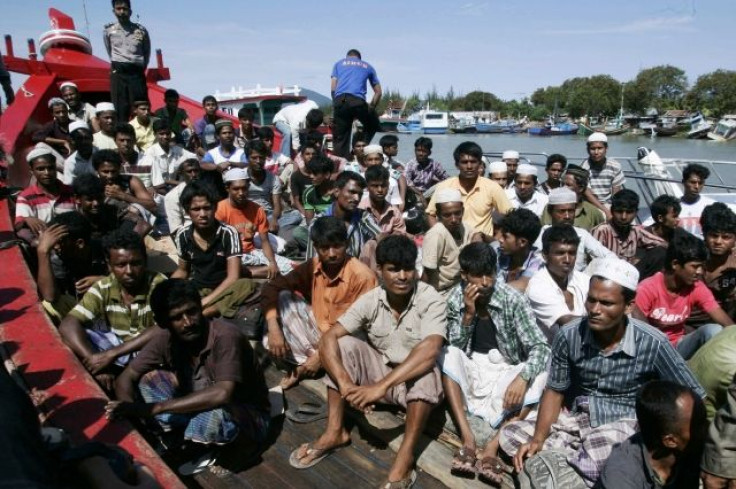EU Lifts Myanmar Sanctions Despite Report Accusing Government Of Ethnic Cleansing Against Muslims

The European Union decided on Monday to lift all sanctions on Myanmar, which has been on a resurgent path, albeit marred by reports of sectarian violence and the government’s alleged complicity in mass killings of minorities last year.
Lifting the sanctions, except for an arms embargo, is expected to bring in more European investment to one of the least-developed markets in Asia, Reuters news agency reported.
Last April, the EU had conditionally lifted all non-military sanctions on the Asian nation for a year, during a visit by foreign policy chief Catherine Ashton. Later in the year, the European Commission chief, Jose Manuel Barroso, offered Burma more than $100 million in development aid.
The U.S. had also suspended sanctions in May and allowed companies to invest through a general license. The EU move would put pressure on Washington to lift the sanctions entirely.
Ending years of military rule, a quasi-civilian government under President Thein Sein took office in March 2011, after the country's first election in 20 years, in November 2010. Since then, he has led democratic reforms in Myanmar.
By-elections last April saw democracy activist Aung San Suu Kyi’s National League for Democracy, win a landslide victory, and weeks later the former political prisoner was sworn into parliament.
The EU decision to lift sanctions coincided with a damning report published on Monday, by the Human Rights Watch, accusing the Burmese authorities of committing “crimes against humanity in a campaign of ethnic cleansing against Rohingya Muslims” in the Arakan State since June 2012.
The 153-page report describes the role of the Burmese government and local authorities in the forcible displacement of more than 125,000 Rohingya and other Muslims amid the humanitarian crisis.
"Burmese officials, community leaders, and Buddhist monks organized and encouraged ethnic Arakanese backed by state security forces to conduct coordinated attacks on Muslim neighborhoods and villages in October 2012 to terrorize and forcibly relocate the population," the report said. "The tens of thousands of displaced have been denied access to humanitarian aid and been unable to return home," it added.
Myanmar’s opposition leader Aung San Suu Kyi said the sectarian strife shouldn't be tied to the economic embargo.
“I do not think that we should link the economic sanctions to the violence, which has a lot to do with rule of law and with other social political problems,” the Nobel laureate said, as reported by Reuters.
British Foreign Secretary William Hague justified the EU decision, saying it was “absolutely vital to continue work” and “to try to stop this ethnic violence.”
He said the EU countries have a role to play in putting an end to the violence, including in the training of police forces, and in promotion of dialogue among different faiths.
© Copyright IBTimes 2024. All rights reserved.












